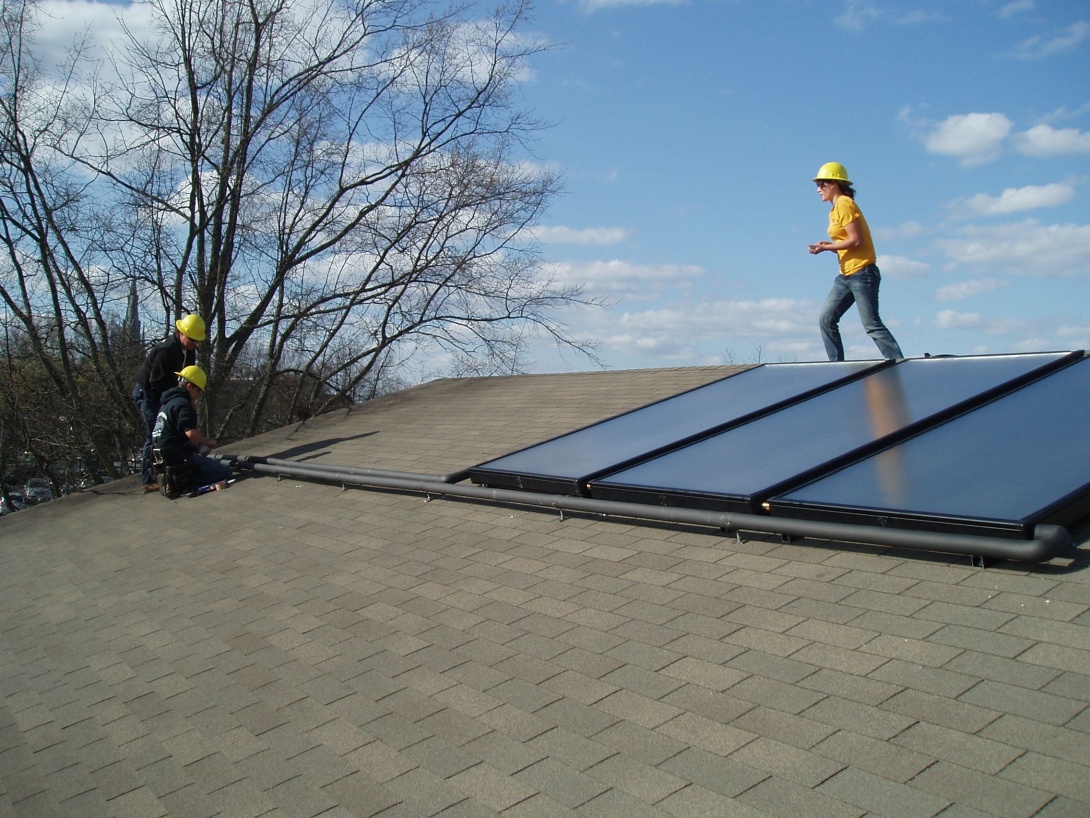Bringing renewable energy to North Carolina's neediest

When it comes to promoting green power, a North Carolina energy watchdog is putting its money where its mouth is by launching a campaign to install solar electric and hot water systems to nonprofit facilities that serve some of the state's neediest residents.
NC WARN is donating rooftop systems and energy efficiency upgrades to service organizations that use large amounts of hot water and electricity. So far the group's Solar Rooftop Donation Program has installed a solar hot-water system at the Helen Wright Center for Women, an organization that serves homeless women in Raleigh, N.C.. It's also installed both solar electric and water-heating systems at Urban Ministries of Durham, N.C. (in photo), which provides emergency services for the poor, and at the Freedom House Recovery Center in Chapel Hill, N.C., a facility that helps people struggling with addiction, mental illness and developmental disability.
"We embrace effective innovations that help us move people from crisis to a place of long-term sustainability," said Patrice Nelson, executive director of Urban Ministries of Durham. "Likewise, for years to come, these solar systems will free thousands of dollars per year that we can use directly for services to those in need, at least enough savings to pay for at least 2,000 meals in our café."
NC WARN is partnering with renewable energy companies to do the actual installations. Among those it's already working with are Cary, N.C.-based Yes! Solar Solutions and Solar Consultants of Carrboro, N.C.
NC WARN welcomes tax-deductible donations to support the program. The group -- which is also working towards powering its own offices in Durham, N.C. with solar electricity -- hopes the effort will inspire North Carolinians to look into solar electric or water heating systems for their homes and businesses.
The cost of a high-quality solar photovoltaic system today is about equal to a used car -- $6,000 to $10,000 -- while solar hot water systems are even more affordable. Homeowners can claim a mix of state and federal tax credits of up to 65 percent of the cost of installing the systems, while business owners can write off nearly the entire investment. The typical solar system can be paid off in five to eight years and will bring benefits for as long as 30 years.
"Solar power is here, it’s affordable and it’s a key to moving this state toward a clean energy future," said NC WARN Assistant Director Rita Leadem.
(Photo of solar hot water system on the rooftop of Urban Ministries of Durham courtesy of NC WARN. To see more photos of the installed systems, click here.)
Tags
Sue Sturgis
Sue is the former editorial director of Facing South and the Institute for Southern Studies.
